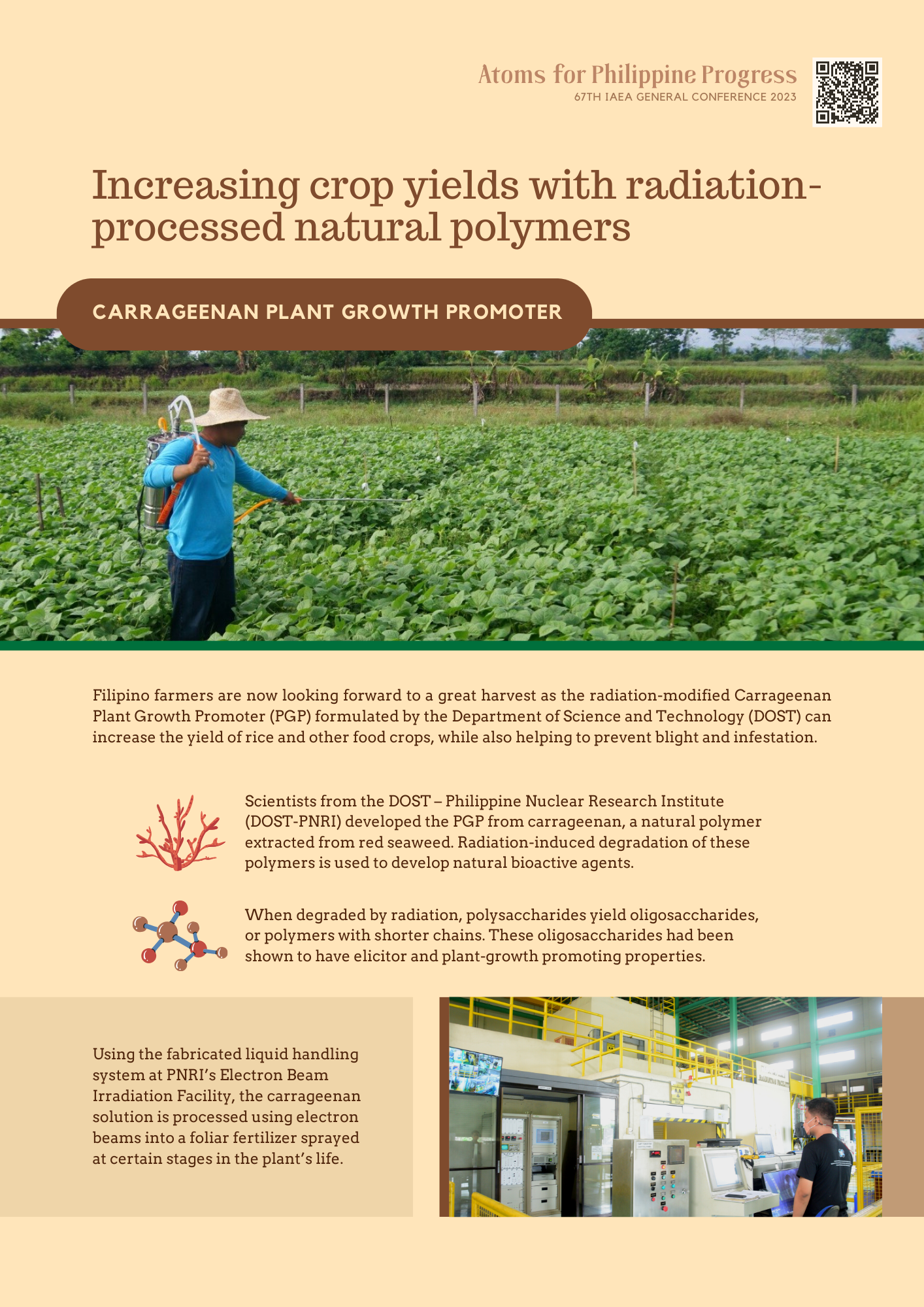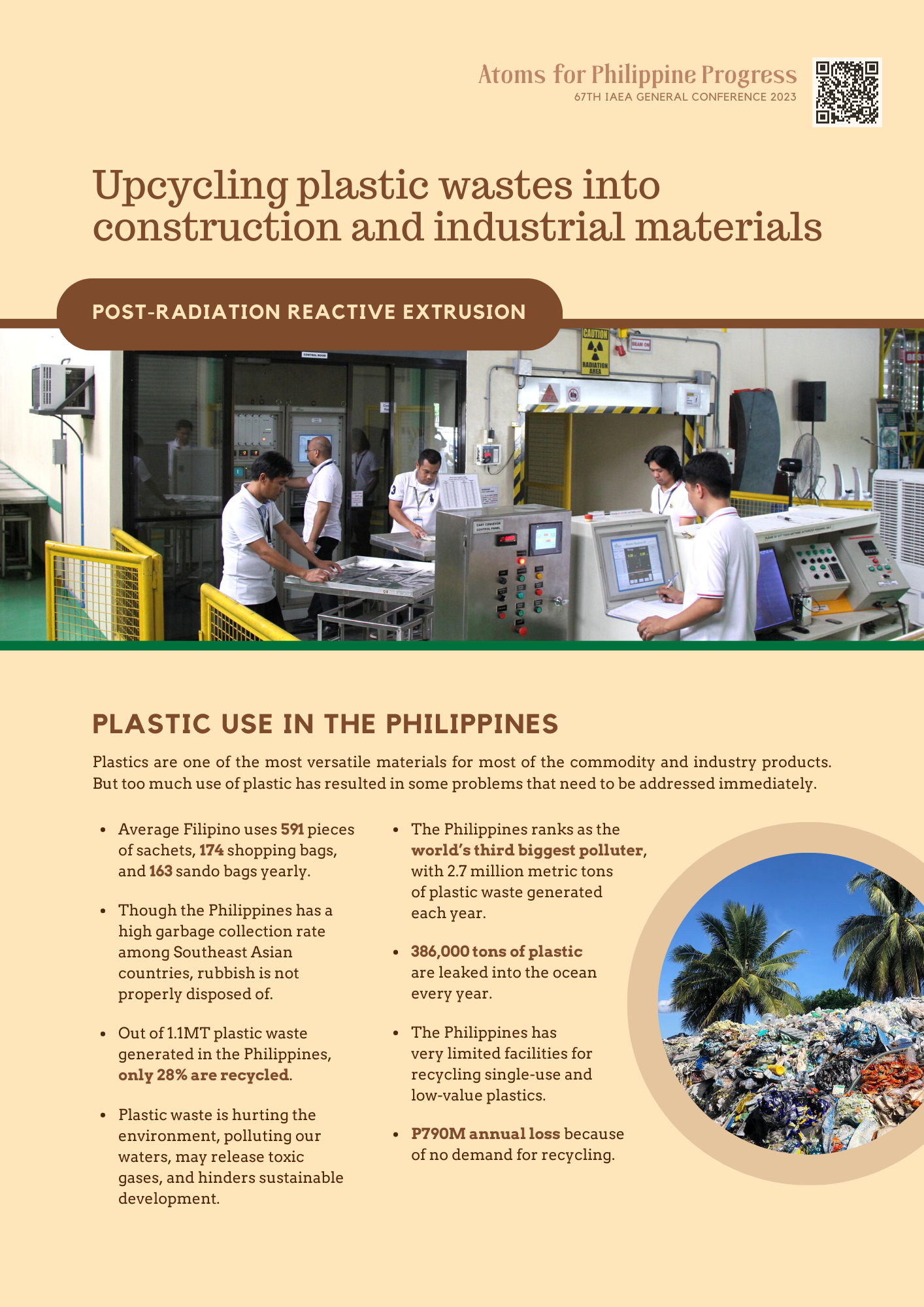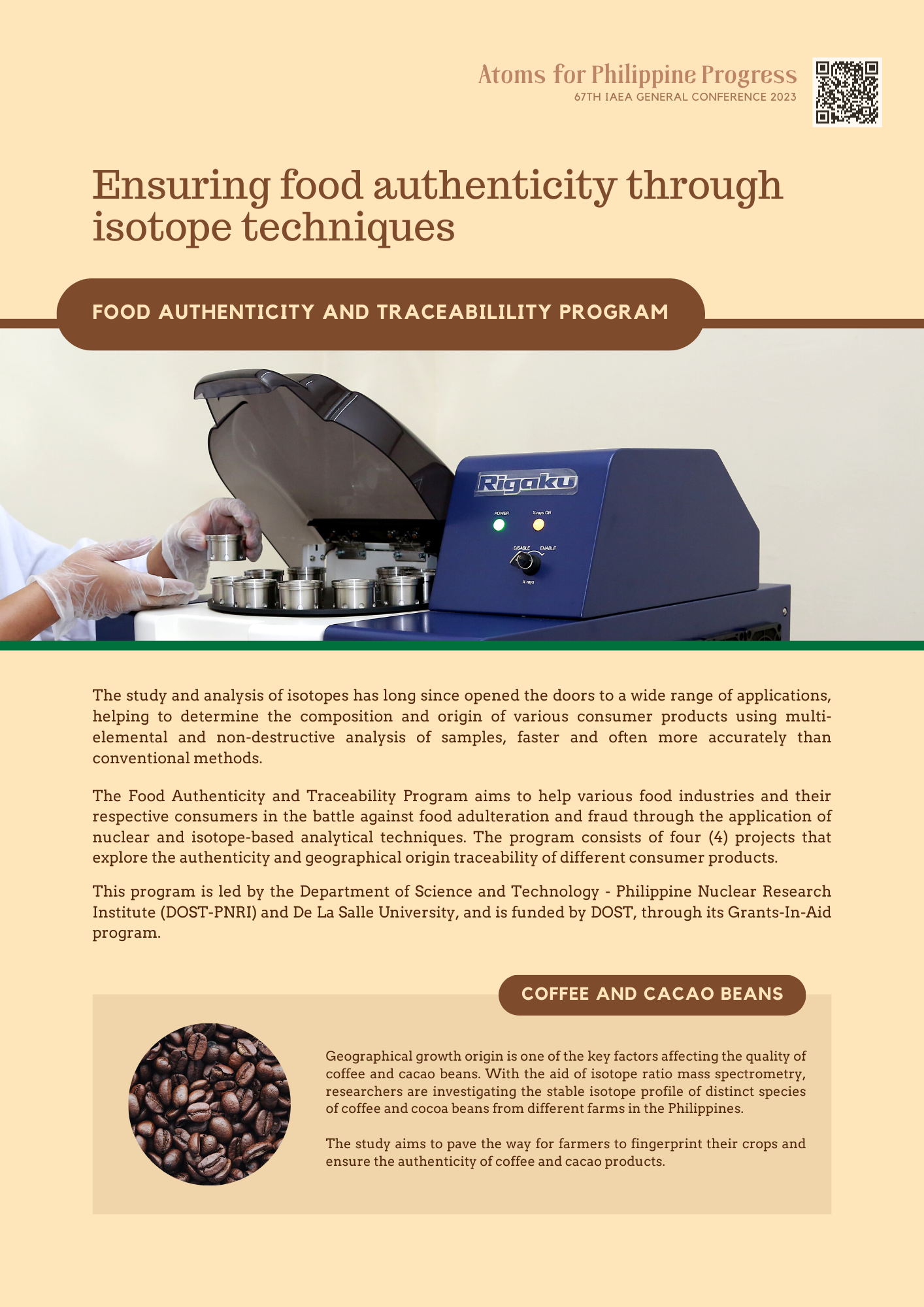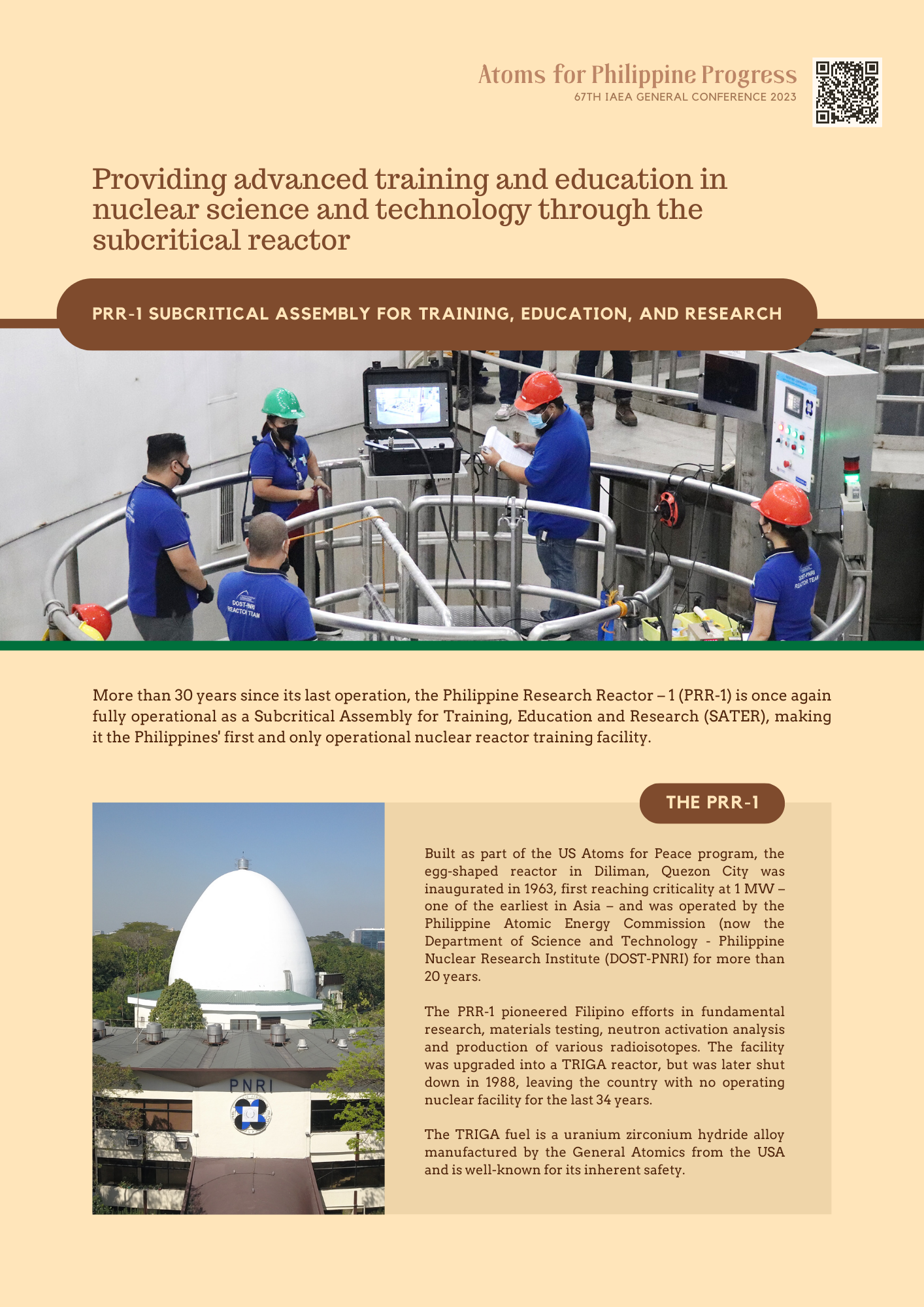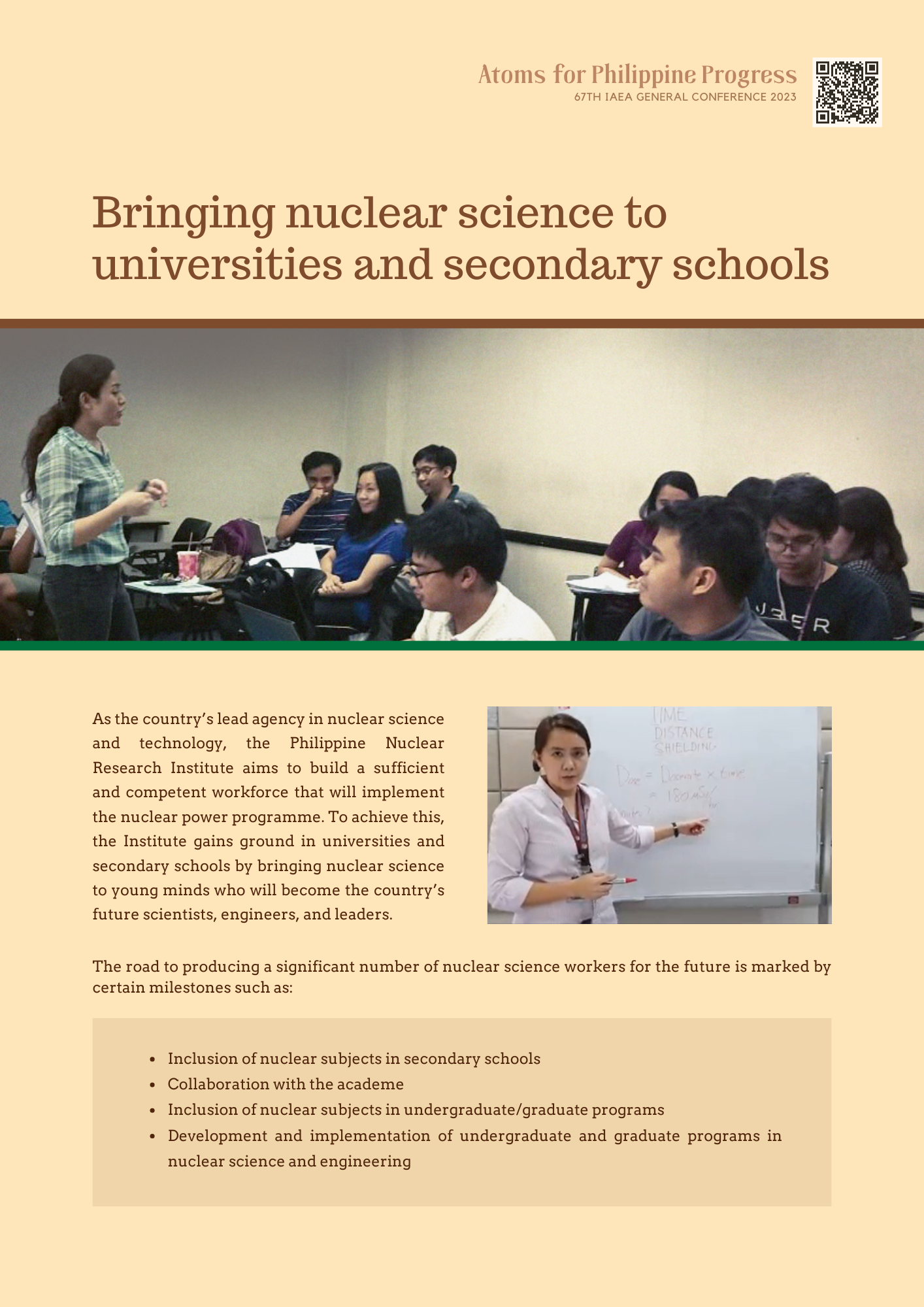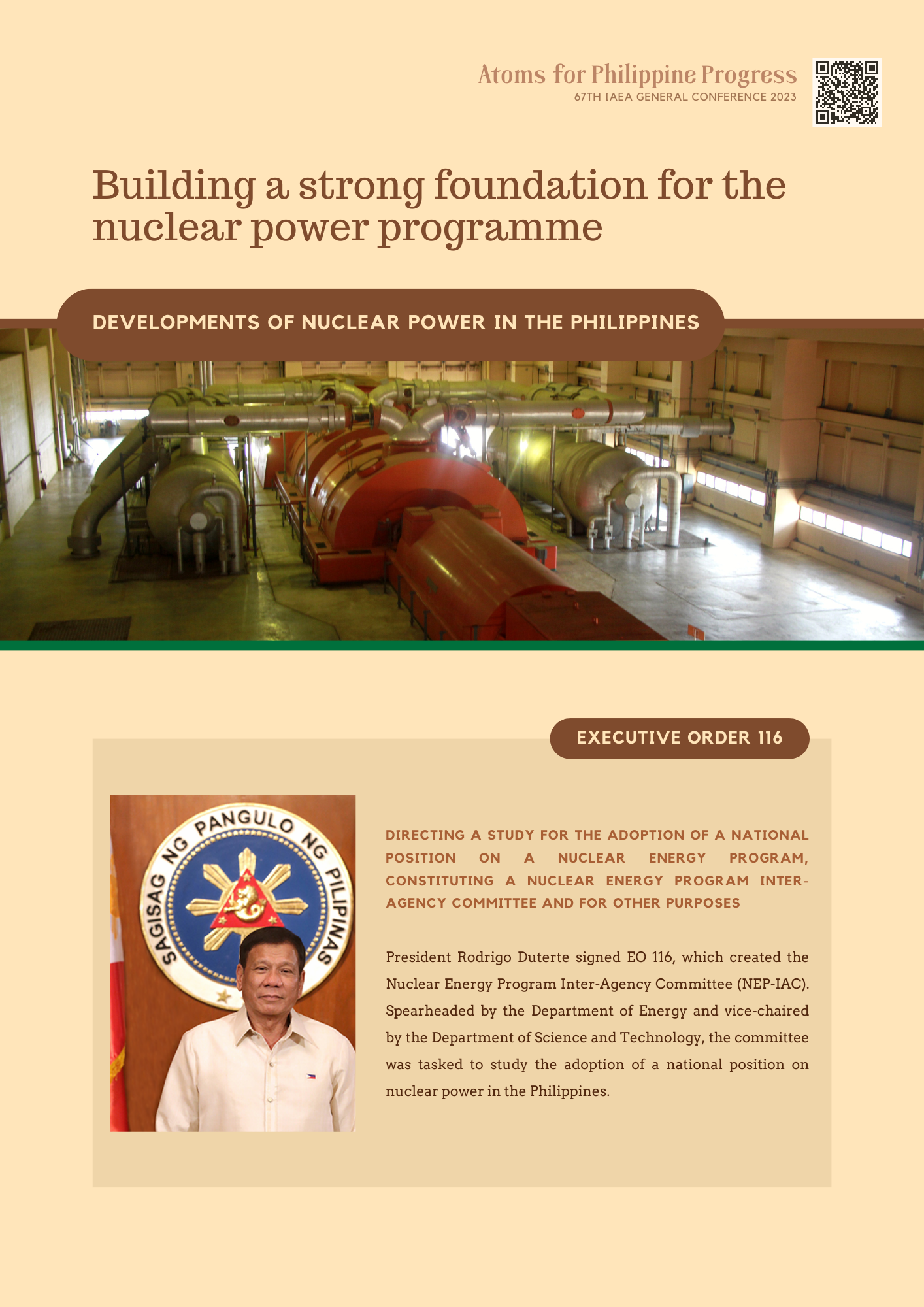
The Philippines’ exhibit for the 67th IAEA General Conference will feature several developments in nuclear R&D and public policy, invoking the IAEA’s thrust towards Atoms for Peace and Development.
With the theme “Atoms for Philippine Progress”, the Philippines demonstrates its firm alignment with the IAEA’s thrust towards Atoms for Peace and Development, highlighting the recent developments and latest innovations in the country’s nuclear science and technology landscape, made possible due in large part to the IAEA’s continued assistance and partnership with the Philippines.
This decades-long synergy between the Agency and its Member State is best observed through the fruits of the IAEA’s Technical Cooperation Programme and other avenues of technical and financial support.
These include the radiation-processed Carrageenan Plant Growth Promoter which increases the yield of rice and other food crops, the Post-radiation Reactive Extrusion (PREx) research initiative, which will harness radiation to recycle plastics and modify them to new products, the Food Authentication Program using isotope-based analytical techniques, the re-establishment of the Philippine Research Reactor – 1 as a Subcritical Assembly for Training, Education and Research (PRR-1 SATER), the country’s first and only operating nuclear reactor training facility, the expansion of nuclear education programs in the country and the recent developments towards building a strong foundation for the Philippines’ re-engagement in a nuclear power program.
The 67th General Conference will run at the Vienna International Centre from September 25 to 29, 2023 in Vienna, Austria.





















